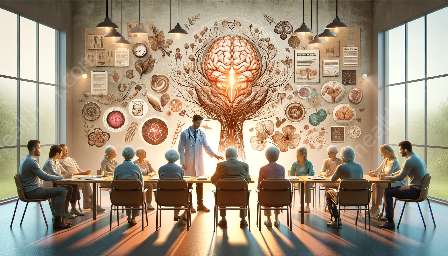Cancer is a complex and challenging disease that impacts millions of lives worldwide. This topic cluster aims to provide comprehensive information about cancer, its impact on health, and related health conditions. From understanding the basics of cancer to exploring prevention, diagnosis, and treatment, this cluster covers various aspects of this significant health concern. Let's delve into the world of cancer and its implications on overall health.
The Basics of Cancer
What Is Cancer?
Cancer is a disease characterized by the uncontrolled growth and spread of abnormal cells. These cells can infiltrate and destroy surrounding tissue and may also spread to other parts of the body through the bloodstream or lymphatic system. There are more than 100 different types of cancer, each with its unique characteristics and treatment approaches.
Causes and Risk Factors
While the exact causes of most cancers are not fully understood, certain risk factors are known to increase the likelihood of developing cancer. These include genetic predisposition, exposure to carcinogens such as tobacco smoke and ultraviolet radiation, unhealthy diet and lifestyle choices, and environmental factors.
Impact on Health
Cancer can have a profound impact on physical, emotional, and psychological well-being. Symptoms can vary depending on the cancer type and stage, and may include fatigue, pain, weight loss, and psychological distress. Cancer treatment itself can also pose significant challenges to overall health, further impacting quality of life.
Health Conditions Related to Cancer
Several health conditions are closely related to cancer, either as risk factors or as consequences of the disease itself. These interconnected health conditions include:
1. Oncologic Emergencies
Certain medical emergencies can arise in cancer patients, such as tumor lysis syndrome, spinal cord compression, and hypercalcemia. These conditions require prompt recognition and management to prevent further health deterioration.
2. Palliative Care
Palliative care focuses on providing relief from the symptoms and stress of a serious illness like cancer. It aims to improve the quality of life for both the patients and their families, addressing not only physical symptoms but also emotional, social, and spiritual needs.
3. Cancer-Related Fatigue
Fatigue is one of the most common and distressing symptoms experienced by cancer patients. It can be caused by the cancer itself, treatments, or other physical or emotional factors. Managing cancer-related fatigue is essential for maintaining overall health and well-being.
4. Chemotherapy Side Effects
Chemotherapy, a common cancer treatment, can lead to various side effects such as nausea, hair loss, and immune suppression. Addressing these side effects is crucial for managing the overall health and comfort of the patient undergoing treatment.
Prevention, Diagnosis, and Treatment
Effective cancer control involves a comprehensive approach that includes prevention, early detection, diagnosis, and treatment. Key aspects of this approach include:
Prevention
Preventive measures such as lifestyle modifications, vaccination against certain cancer-causing viruses, and regular screening tests can help reduce the risk of developing cancer. Avoiding tobacco, maintaining a healthy weight, staying physically active, and protecting oneself from excessive sun exposure are some of the lifestyle choices that can contribute to cancer prevention.
Early Detection and Screening
Regular cancer screenings, such as mammograms, colonoscopies, and Pap smears, can help detect cancer at an early stage when it is more treatable. Early detection greatly improves the chances of successful treatment and overall health outcomes.
Diagnosis and Staging
Diagnostic tools such as imaging studies, biopsies, and laboratory tests are used to confirm the presence of cancer and determine its extent, or stage, in the body. Accurate diagnosis and staging are essential for developing an appropriate treatment plan and understanding the impact of the disease on overall health.
Treatment Options
Treatment for cancer may include surgery, radiation therapy, chemotherapy, immunotherapy, targeted therapy, hormone therapy, or a combination of these approaches. The choice of treatment depends on the type of cancer, its stage, the person's overall health, and other individual factors.
Conclusion
Cancer is a multifaceted and far-reaching health concern that requires a comprehensive understanding of its impact on overall health and well-being. By exploring the basics of cancer, related health conditions, and the prevention, diagnosis, and treatment approaches, individuals can gain valuable insights into this complex disease and its implications. Understanding cancer's effects on health can empower individuals to take proactive steps to protect their well-being and support those affected by this challenging condition.















































